The most valuable thing the world affords
pages 2-3

The most valuable thing the world affords
pages 2-3

The
pages 8-9
10-11
Bible and motherhood Teaching the Moore PTC at Pacific Hills Christian School pages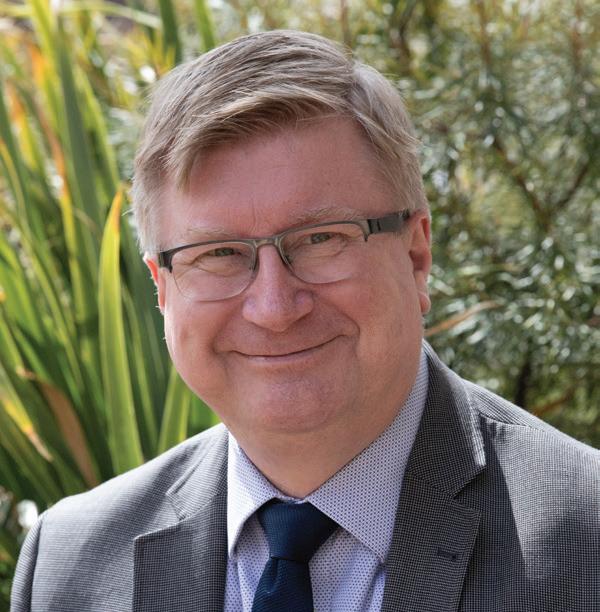
AT THE RECENT CORONATION OF KING CHARLES III, HE, LIKE EVERY KING AND QUEEN OF ENGLAND SINCE 1689, WAS PRESENTED WITH A BIBLE.

The words uttered at that moment by the Moderator of the General Assembly of the Church of Scotland were:
Sir, to keep you ever mindful of the law and the Gospel of God as the Rule for the whole life and government of Christian Princes, receive this Book, the most valuable thing that this world affords. Here is Wisdom; this is the royal Law; these are the lively Oracles of God.
It is a very strong set of words. For many this was a throw-back to a bygone era, when faith and the church played a more significant role in public life. It is part of the coronation ceremony that they would be happy to see excised. Yet for others this reflects something profoundly true irrespective of the current cultural mood. The Bible, the written word of God, is more precious than anything else in the world. It is the instrument the Spirit uses to awaken and nourish faith. It generates hope and it promotes and expounds love. Two weeks before the coronation, the fourth GAFCON took place in Kigali, Rwanda. The Kigali Commitment that came out of that conference spoke at length about the authority of the Bible and its place in the life of believers and in the churches.
The Bible is God’s Word written, breathed out by God as it was written by his faithful messengers (2 Timothy 3:16). It carries God’s own authority, is its own interpreter, and it does not need to be supplemented, nor can it ever be overturned by human wisdom.
God’s good Word is the rule of our lives as disciples of Jesus and is the final authority in the church.
It grounds, energises and directs our mission in the world. The fellowship we enjoy with our risen and ascended Lord is nourished as we trust God’s Word, obey it and encourage each other to allow it to shape each area of our lives.
What a great encouragement these words are! They not only remind us that we are called upon to trust the Bible, but explain why we do. The words of the Bible, from an array of different human authors, produced over a protracted period of time, are at the very same time the word of God to us. God did not bypass the choices, personalities, creativity and styles of the human authors of each part of Scripture. Even in translation we can tell the different styles and emphases of Paul and John, of Moses and Isaiah. They wrote purposefully, consciously choosing the topics they did, and using the words they did. Yet the end result is what God intended us to have. It is the word of God written.
The pattern of life with God has been, from the very beginning, word-shaped. The man and woman in the Garden of Eden were meant to live under the word of
God’s blessing, promise and warning. Everything went haywire when they chose not to listen to God’s word of warning and to follow another word from a most bizarre source. Abraham was meant to live under the promises God made to him when he called him (Genesis 12:1–3). The people of Israel at the base of Mount Sinai “did not see a form” they “heard only a voice” (Deuteronomy 4:12). They were to relate to God by hearing and obeying his words. The Psalmist spoke of God’s word as “a lamp to my feet and a light to my path” (Psalm 119:105). Isaiah recorded God saying, “but this is the one to whom I will look, he who is humble and contrite of heart and who trembles at my word” (Isaiah 66:2).
The faithful Old Testament Israelite delighted in God’s word and saw it as an enormous privilege to be those to whom God has chosen to address himself. God’s word brings life and wisdom, justice and peace. The worst kind of judgment imaginable was silence from God, “a famine of hearing the words of the Lord” (Amos 8:11). After all, it was the word of the Lord that pointed them forward to the deliverance to come and the one who would bring it.
Jesus challenged those who opposed him with the question “Have you not read?” (Matthew 12, 19, 22) and with the insistence “It is written” (Matthew 4). He spoke of true discipleship in terms of “hearing these words of mine and doing them” (Matthew 7:24). He gave his words (or rather the words of his Father) to his first disciples, and they received them (John 17:8) so that they could share them with yet others (John 17:20; Matthew 28:20). As that apostolic mission got underway, and Paul joined them to speak of Jesus to the Gentiles, he made much of the critical role of Scripture.
Whatever was written in former days was written for our instruction, that through endurance and through the encouragement of the Scriptures we might have hope. (Romans 15:4)
All Scripture is breathed out by God and profitable for teaching, for reproof, for correction, and for training in righteousness, that the man of God may be complete, equipped for every good work. (2 Timothy 3:16)

The writer to the Hebrews pressed down on how penetrating God’s word can be.
For the word of God is living and active, sharper than any two-edged sword piercing to the division of soul and spirit, of joints and of marrow, and discerning the thoughts and intentions of the heart. (Hebrews 4:12)
Since life as a disciple is life lived under the direction of the word of God in the power of the Spirit, those involved in God’s work of making disciples, nurturing them in faith and equipping them to join in the mission, must know the Bible well. The training they themselves receive needs to be a deep and sustained immersion in Scripture. They need themselves to understand the Scriptures, delight in the Scriptures, and be shaped by the Scriptures. They need to learn how to love from the Scriptures and how to hope from the Scriptures. How they view the world, how they treat those right in front of them, the decisions they make in ministry, all need to be directed and shaped by the teaching of the Bible.
That’s what a theological education at Moore College is all about. The Bible looms so large in all we do because it is God’s word and what he has to say to us is of supreme importance. It is the sword of the Spirit, his instrument to shape us into the image of Christ and equip us for his mission. Of course we must pay careful attention to what is going on in the world into which we are sent. We learn from each other and from those who have gone before us or live alongside us. But God’s written word has a priority which is evident (we trust) in all we do. It does not need to be corrected, or clarified, or supplemented, precisely because it is God’s word.
“The most valuable thing this world affords”? Most certainly. “The good word of our good God that rules our lives as disciples of Jesus and is the final authority in the church”? Without a doubt. “Its own interpreter”? How critically important that is in theory and in practice. But one more thing. Jesus trusted God’s word and entrusted God’s word to his apostles. So because I am a follower of Jesus, I trust the Bible.
Dr Mark D Thompson, Principal
“LORD, OPEN THE KING OF ENGLAND’S EYES!” THESE WERE THE DYING WORDS OF WILLIAM TYNDALE WHO EARNESTLY DESIRED THAT THE PLOUGHBOY WOULD GRASP AS MUCH OF THE SCRIPTURES AS WOULD THE PRIEST.

Three years later his prayer was answered in abundance when King Henry VIII authorised the Great Bible in 1539. Every parish in the realm was ordered to purchase it and have it physically chained to a convenient place, such as the lectern. It was great, not only because of its size, but also because of its authority. In its Preface, Archbishop Thomas Cranmer said, “this book … is the Word of God, the most precious jewel, the most holy relic that remains on earth.”
Cranmer knew that the Bible needed to be central to his Reformation agenda. He believed that the Holy Scriptures were God-breathed (2 Tim. 3:16; 2 Pet. 1:21) and that they judge the thoughts and attitudes of our hearts (Heb. 4:12). Thus, the sharpness of the written Word of God could cut out those errors of the church which had crept in through the Middle Ages. The penetrating clarity of the written Word of God could assist men, women, and children to understand the will of God for their own lives. The living and active written Word of God could powerfully and sufficiently supply salvation to the whole world through faith in Christ alone.
However, there were plenty of challenges ahead for Cranmer. Henry VIII was not keen to see the Bible overturn received doctrines like the mass and clerical celibacy. Thousands of the Church of England clergy did not share Cranmer’s evangelical convictions, and a good number of the bishops were diametrically opposed to the Reformation. Indeed, having the Bible physically chained to churches could get Cranmer’s grand plans for reformation only so far – and he knew it. Just four years after the Great Bible was published, the archbishop examined a priest who could not tell him who was the father of King David. In the same year, a turner from Canterbury, one John Thatcher, told him that the Bible was made by the Devil. Evidently, there was plenty of work to be done!
When the nine-year-old evangelical Edward VI was crowned king in 1547, Cranmer lost no time in making big changes. That year the Archbishop and some colleagues published a book of sermons (the Book of Homilies) which were required to be preached
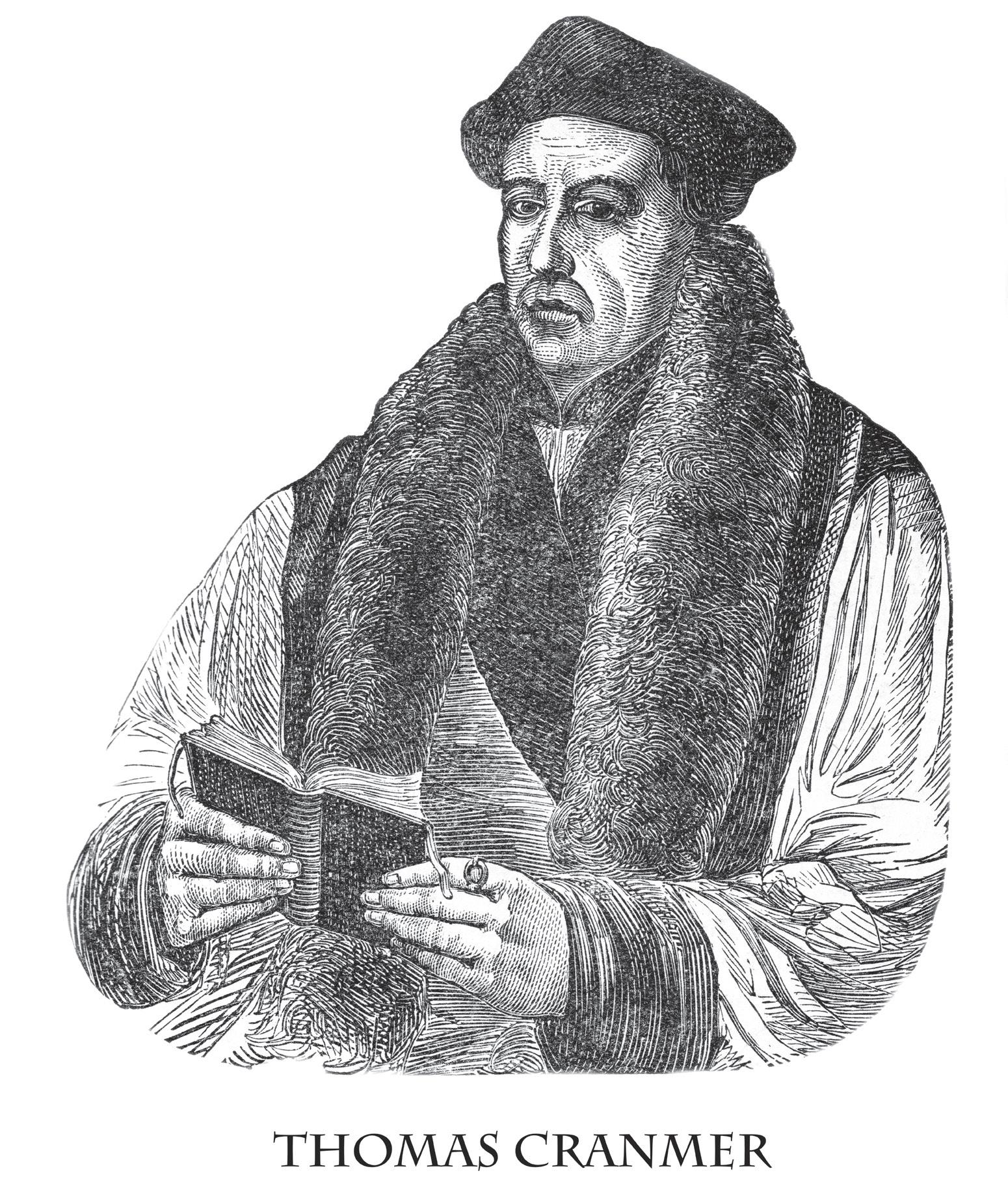
across the 2,000 or so parishes in the realm. They were biblically rich and expounded the important doctrines such as Sola Scriptura, justification by faith alone, and the importance of good works in the Christian life. Then in 1549, Cranmer and his colleagues set forth the Book of Common Prayer – biblically rich orders of service for Sunday gatherings, baptisms, weddings, funerals, and so forth.
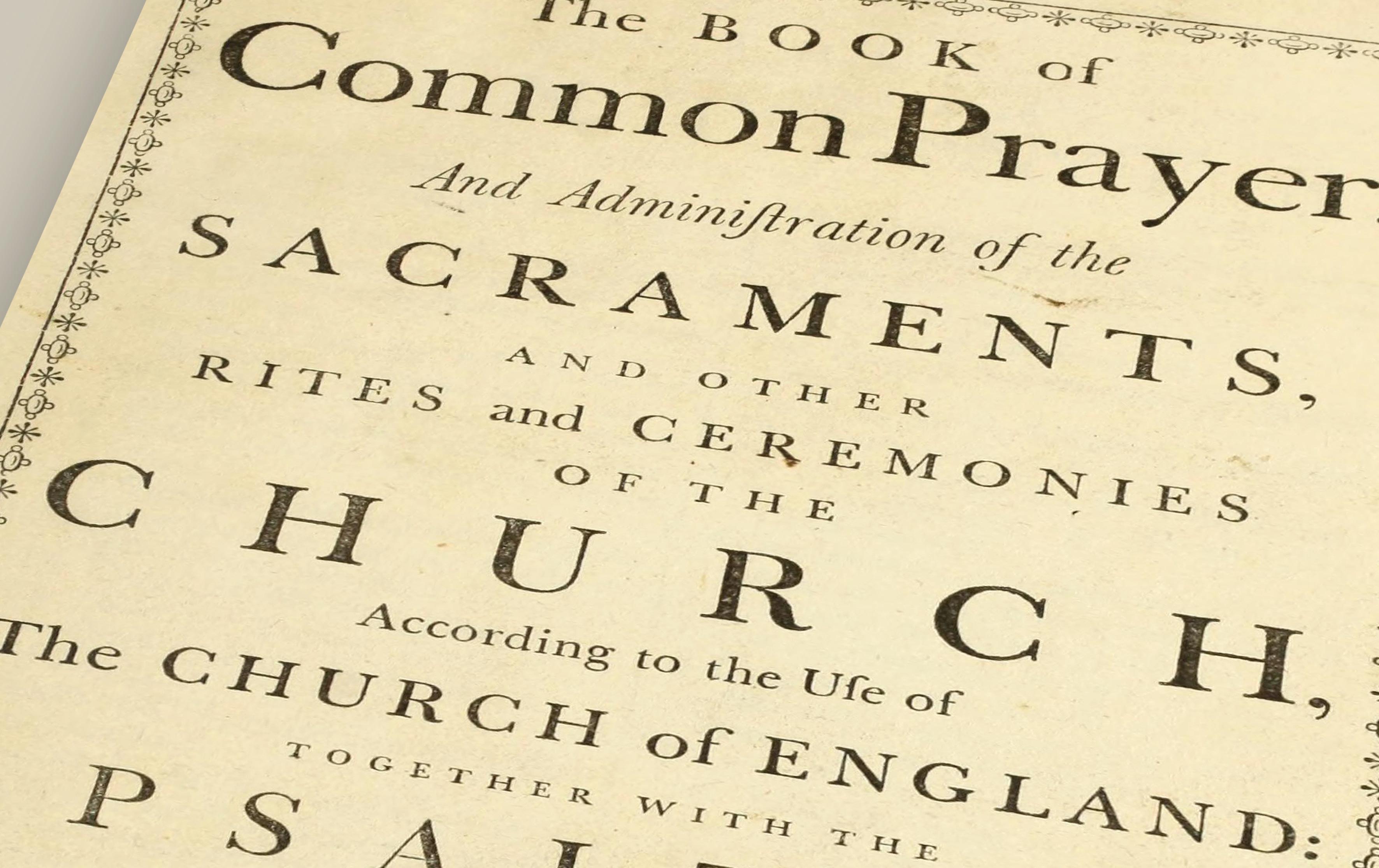
In fact, to provide such a rich feast of Scripture for parishioners, Cranmer compiled a Bible reading plan (lectionary) for his new church services. Throughout every parish most of the Old Testament was read once a year, most of the New Testament was read three times a year, and the whole Psalter was read once every month! These Bible readings were ordinarily called “lessons” and reflected the Reformation conviction that there was no need for a priest or church leadership to mediate or interpret God’s Word for the hearer. The Bible was true, it was clear, and it was powerful. Little wonder that over time the phrase “This is the Word of God” was said after its reading, and “Thanks be to God!” was afterwards declared by the congregation.
In 1553 Queen Mary Tudor (“Bloody Mary”) would attempt to silence the Scriptures and persecute the Protestants. Cranmer and many of his colleagues would take bold stands for their convictions and would eventually be forced to seal their confession with their own blood. “I would be ruled by God’s book”, declared the elderly Hugh Latimer, “and rather than I would dissent one jot from it, I would be torn with wild horses.” In the Lord’s kindness, these great Marian martyrs planted the seeds of Reformation Anglicanism
which came to fruition during the reign of Queen Elizabeth I. In 1571, the 39 Articles of Religion were set down and brilliantly enshrined the Anglican principle that the Bible was “God’s Word written.”
There is, of course, much more which could be said about the Bible at the time of the English Reformation.1 However, one thing is clear. The English Reformers have bequeathed to faithful Anglicans an appreciation for the centrality of the Holy Scriptures. Indeed, our chapel services at Moore College share Cranmerian convictions. In addition to the preached word, sung word, and visible word of the Lord’s Supper, we have four readings of Holy Scripture (including a sung or said Psalm). Why? Because we still believe that the Bible is true, that it is clear, that it enriches and edifies, and that it is mighty and sufficient to save.
When we meet them in glory, we may thank those English reformers for the blood, sweat, and tears, which they sacrificed to secure the primacy of the Bible which we now enjoy. However, I suspect that before we do, we shall find ourselves gathered alongside them, before the throne of Christ, and crying out “praise and glory and wisdom and thanks and honour and power and strength be to our God for ever and ever.” (Rev. 7:11-12). Or, in other words, what we exclaim after hearing the Bible now will be something like what we shall joyfully say then: “Thanks be to God!”

THE SOCIETY WE LIVE IN IS FULL OF COMPLEXITY. IT IS A WORLD WHERE PEOPLE WHO CLAIM TO HOLD TO THE SAME CHRISTIAN GOSPEL DISAGREE ON HOW WE ARE TO LIVE AND RESPOND TO ETHICAL ISSUES. MOORE MATTERS SPOKE TO ARCHIE POULOS, THE HEAD OF THE MINISTRY DEPARTMENT, TO SEEK SOME ANSWERS ABOUT WHY THIS HAPPENS AND HOW CHRISTIANS MIGHT NAVIGATE SUCH DISAGREEMENT.
Moore Matters: In seeking an answer about how to live, I wonder whether a good starting point is The Westminster Confession of Faith, as many call this the ‘Rolls Royce’ of Protestant Confessions. It states
‘The whole counsel of God concerning all things necessary for…faith and life, is either expressly set down in Scripture, or by good and necessary consequence may be deduced from Scripture.’
(WCF, 1.6)
What does this mean, and what does it look like in practice?
Archie Poulos: The Westminster Confession of Faith is a wonderful document and has served the church well over the years.
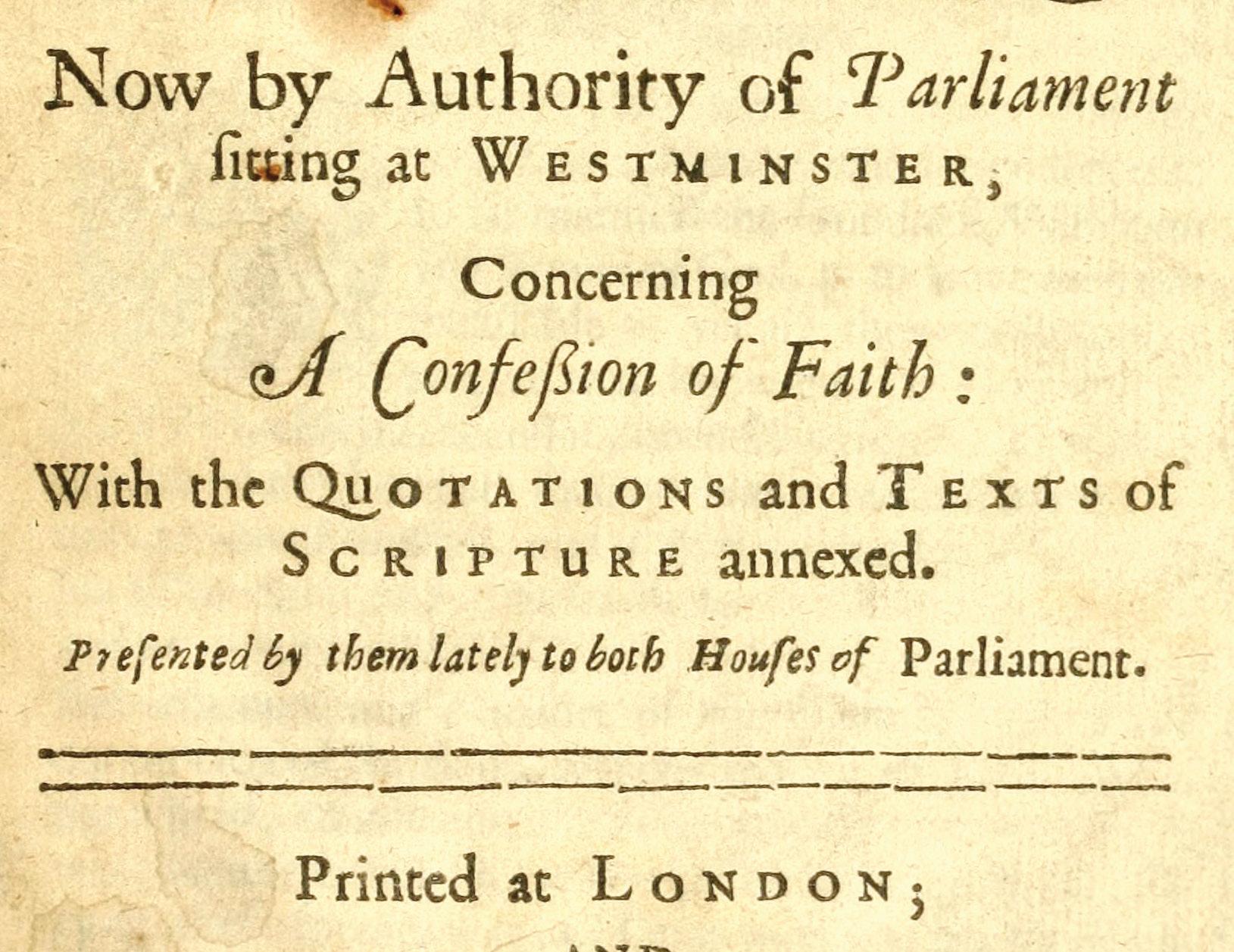
It is firmly anchored in the truth of 2 Timothy 3:16, that Scripture prepares the man of God for every good work. But what does that mean? To understand and obey Scripture so that you can be equipped for every good work you need to be able to read, and to reason, which Scripture does not teach. So, what does the Confession mean when it claims Scripture contains all things necessary for faith and life?
It is not claiming that everything that is true is to be found in Scripture. After all, Proverbs calls on us to see truth in the world. It does claim, however, that Scripture is God’s good and enlightening means of understanding ourselves, God, and the world properly. Scripture provides all that we need to live life rightly and wisely. Without this divine revelation we will never get life right, and with it we can know all that is necessary to live a faithful life.
Let me give a trivial example. In the early days of computers, one of my lecturers was writing a book on
his computer. He completed a chapter and after printing it he deleted the file because he saw the computer as no more than a typewriter with a screen. Knowing it is possible to save and modify work transformed his book writing. It gave him the capacity to improve his writing in any situation. In the same way, Scripture arms us with right ways of understanding so that we can determine how to decide and behave when there is no explicit word from God.
Our Dean of students, Paul Grimmond, likens Scripture to a fishing net. The net has boundaries and cords that give shape to the device. There are holes, but you know where the holes are and how they relate to the net because of the net structure. In the same way, Scripture provides shape to belief and understanding so that we can interpolate or decide how to deal with a situation that is not explicitly spoken of in Scripture by the truths that surround and encompass it.
Some things in Scripture are clearly demanded and we must obey them, while Scripture is silent on other things (like social media, for instance). But it gives us ways to evaluate those things on which no command is given: Does it cause people to grow more like Jesus and promote godliness? Does it hurt people?
MM: So, you are suggesting that the Bible is more than a rule book to consult on how to act. It assists us to think God’s way and so make wise decisions.
AP: Absolutely, but as wonderful and unique as Scripture is, God, in his kindness, never gives us Scripture alone. He gives believers his Spirit to give insight and to incline our wills to honour God. The
Spirit works to overcome our natural ignorance and bias against God so that we might know what pleases Him and empowers us to do these things.
MM: But we are still left with ‘why do Christians disagree?’ Your comments about Scripture and the Spirit make this an even bigger issue!
AP: Christian history is a history of disagreements. Disagreement in and of itself is natural and not sinful. What you do with disagreements is what matters. When Christians disagree, we should open our Bibles together, and ask God to teach us as we read the His word together. Sometimes we will get clarity that one person is right and the other wrong, and the one who is wrong needs to change. Sometimes the disagreement is in a place like a hole in the fishing net. So, we need to discern the Biblical principles that enable us to decide what to do. This may well help overcome the disagreement. Sometimes, having looked at the principles, however, we come up with some that conflict with each other, and we cannot agree. That usually means there is no ‘right’ answer, and we need to exercise grace, generosity and latitude to each other (cf. Romans 14).

MM: Can you apply this way of thinking to some of our current debates, such as ‘the Voice’, migration policy, and industrial relations laws?
AP: Each of these have competing theological principles, and so I want to warn against holding to a black and white position. That is, one position being absolutely right and therefore the other being absolutely
wrong. Each position has truth in it.
Instead, I want to ask ‘why do I hold my position? What am I trying to protect?’ Sometimes I am protecting truth, or protecting the weak, but sometimes I am protecting myself, my preference, or my position. I must repent of this last motive and seek to love others. I don’t want to pretend this is easy. Loving people brings competing desires. To show love to one person usually costs another person, so we must pray for wisdom. Often people revert to using a clear conscience as the basis of wisdom. Conscience is crucial, but it is a ‘one-way valve’—it only really works in one direction. If your conscience is compromised and you feel you are doing the wrong thing, you are (Rom 14:23). But if it is clear, you might be doing right, or it might be that your conscience is corrupted. So we must keep reading the Scriptures in the company of fellow believers.
This may sound like compromise. It is anything but that. Some things are black and white. We must stand boldly for these things, and never compromise. We should clearly argue our case with one another so that we can learn from each other, while at the same time humbly being willing to listen and change.

 Jocelyn Loane / College Chaplain
Jocelyn Loane / College Chaplain

I FIRST BEGAN READING THE BIBLE ON MY OWN AT AGE 15. I GREW UP IN A NON-CHRISTIAN HOME AND CAME TO FAITH IN MY EARLY HIGH SCHOOL YEARS.
The first time I heard about the idea of a personal ‘quiet time’ was at a youth group camp in Year 10. The group leader gave us all a booklet of Bible readings with some accompanying questions and suggested we find time each day to read the passage and answer the questions. The book had little boxes to check off each day, and there’s nothing I love more than checking a box, so I happily complied. As I read each day, I noticed a couple of things happening. I grew in confidence that I could read the Bible and understand it for myself, and I grew hungry. The more I read, the more I wanted to read.
As I was finishing up this booklet, I read a book that described a method for Bible reading that I heartily embraced. It involved filling out a page in a notebook with answers to questions you would bring to each passage you read. If there was something I loved more than checking a box, it was getting out my coloured gel pens and writing a page of colour-coded notes. In this way I kept reading the Bible for many years. That is, until I became a mother.
Our first daughter was born just a few months after I finished my study at Moore College. The full-time study of the Bible had been a season so rich in being fed that I felt I could barely digest a fraction of what was being served. I felt myself stretched and pushed and growing in understanding at a pace I’d never experienced before. I made lists of things I wanted to think and read about further when I had the luxury of time. Like when this baby I was carrying arrived, and I had all those hours while she slept and no exams and assignments getting in the way. It might be apparent by now that I didn’t have much experience with babies!
I packed my Bible, notebook and pens in my hospital bag, fully expecting my quiet times would continue as they always had in this new season of motherhood. That Bible came out only once during my hospital stay, when my dear husband read me a passage as I held our daughter who never wanted to be put down. And I don’t think that notebook was ever written in again. Those early months of motherhood were a blur of sleeplessness, mind fog and bewilderment, as I learned to care for our daughter. All the normal structures of my
life seemed to slip away. The thought of having a quiet half hour to sit at the table with a cup of tea, my Bible open and my gel pens lined up ready to write notes seemed a distant dream.
In those first months of our daughter’s life, we would rarely sit down for a meal. Mostly I’d grab a few bites here and there, sometimes shovelling food from a bowl held over her head as she balanced on my lap. Even though eating a meal the way I used to became more difficult, I still ate. I needed food to fuel my body and keep me going. In Luke 4 Jesus quotes from Deuteronomy 8:3 “He humbled you, causing you to hunger and then feeding you with manna, which neither you nor your ancestors had known, to teach you that man does not live on bread alone but on every word that comes from the mouth of the Lord.” We need
the Word of God. We live on it. The Bible is not an occasional tasty treat, it’s the bread we need to survive. As a new mother I needed the food of the Word of God as much as ever.
A couple of years ago my husband and I were given a gift voucher for a hot air balloon ride in the Hunter Valley. When we went to book the flight there were all sorts of provisos around if we would actually fly that day. The balloons only go up very early in the morning when they are most likely to have cool, stable and calm winds. Because they use the wind to navigate, conditions must fall within strictly prescribed parameters to make the flights possible and safe. There should be no rain, nor even particularly cloudy conditions. If the conditions aren’t perfect, there is no flight. As I became a mother, I had in my head that reading the Bible was something I needed certain conditions for. Because of this there were many days I just wouldn’t read. But reading the Word is not like a hot air balloon flight. You don’t need perfect conditions. Reading the Word is like eating. You need to get food in regularly.
In early motherhood I had to start reading the Bible the way I started eating. Small bites here and there. I had to commit to still reading as I committed to still eating. Just like I needed physical food for energy, so I needed the spiritual Word of God to strengthen my love for him and spur me on in my faith. As I have gone on as
a mother this principle has had to continue. Currently I read my Bible sitting with my morning coffee, but there is usually a continual parade of my five children in and out of the room with requests to help find sports bags and shoes and precious stuffed toys that have been lost. There are calls to open a new cereal box and behold the Lego creation that has been constructed. Conditions might be less than ideal, but I am being fed. I’m eating. There’s nothing quiet about my quiet times now. But just as he always has, God is using his Word to teach, rebuke, correct and train me in righteousness so I can be equipped for every good work, including that of motherhood.

covered and be able to have respectful discussion on issues that cause debate. The students can also manage their progress more effectively at this age and undertake pre-reading or extra reading if ahead of or behind the program of the class.
MM: Were there any challenges in balancing the HSC curriculum with the study of the Moore PTC, and how have you overcome these challenges?
Moore Matters spoke to Pacific Hills Christian School teachers Mr Tim Dawson and Mr Joshua Mann about how Pacific Hills has implemented the Moore PTC into their curriculum.
Moore Matters: How did Moore Theological College’s PTC become integrated into your school curriculum, and why did you consider it important for your Year 11 and Year 12 students?


Pacific Hills Christian School Moore Theological College’s PTC Course was integrated into our school curriculum here at Pacific Hills Christian School in 2005 when the leadership wanted to provide an alternative for senior students who did not want to take the HSC Studies of Religion course. The PTC course included a great range of subjects that provided a strong Biblical foundation for young adults. Subjects such as Introduction to the Bible and Knowledge of God allowed students to solidify their understanding of salvation history and also the character of God before moving on from the School and into their next chapter of life.
MM: How have you tailored the Moore PTC to suit the specific needs and understanding of your students? Are there unique challenges or rewards that come with teaching theological material at this level?
PHCS: The Moore PTC studies have been an amazing way for our students to access the truth of the Bible in a deep and profound way. We have found making each lesson highly discussion based has enabled our students to wrestle with some of the more complex concepts found throughout the studies. In this way, we have been able to encourage and challenge our students in a more collaborative manner.
Holding the material back until Year 11 and 12 has enabled the classes to maturely approach the topics
PHCS: As the course is an option it does not directly impinge upon the students’ program of study for their HSC subjects. The periods that are provided for PTC lessons are part of a Biblical Studies line of study where all students select an option, either a school developed Biblical Studies course, PTC or the HSC Studies of Religion course.
One of the main challenges is finding time within a very structured school timetable for the students to sit the 90 minute exam for each unit. The development of the online examination process has enabled our students to complete each exam in their own time and, in turn, it allows for more discussion within our timetabled lessons.
MM: What kind of responses have you seen from the students thus far? Are there any specific topics from the course that have sparked interesting discussions or learning?
PHCS: We always receive positive feedback from students regarding the PTC curriculum and lessons. The students who have chosen to undertake the PTC course are generally self motivated and keen to dive deeper into theology and their understanding of God. This provides a very positive classroom environment typified by lots of discussion and sharing of ideas. Students find this highly engaging and incredibly interesting as they wrestle with varying perspectives on passages and doctrines. With students coming from a range of denominational backgrounds, studies on different doctrines contained in the Knowledge of God unit, as well as Church Practice and Christian Living in Ephesians have created some very colourful discussion, causing students to carefully consider their understanding on such issues.
MM: How do you approach the diversity of faith perspectives and interest levels among your students while teaching the Preliminary Theological Certificate
course, given that not all students might come from a Christian background?
PHCS: As PTC is an option for students to select, we haven’t come across any difficulties in presenting the material. Students are well aware of what content will be covered and do not have to select the course if they do not wish to undertake deeper theological study. Although we do not have varying religious worldviews in the class, we do have students from a range of denominational backgrounds. We present the material with the understanding it is provided by Moore Theological College, an Anglican college, and encourage the students who are not from an Anglican tradition to compare the views in the studies with the statement of beliefs of their particular denomination. This provides a great point of discussion and also a challenge for students to know why they believe what they believe.
MM: What impact, if any, do you think this early theological education has had on the parents or families of the students? Have you received any feedback from them?
PHCS: Due to the optional nature of this Moore PTC within our School program, we have seen mostly Christian students participate in the course. For the most part, the parents of these students are extremely appreciative of the deep theological concepts their children are discussing. We have seen an incredible ‘buy in’ from our Christian students and it has been so encouraging to see them not only understand the Bible more but also let those truths mold and change their lives.
MM: What advice would you offer to other educators or Christian schools who might be considering incorporating a theological curriculum such as Moore’s PTC into their own programs?

PHCS: We would highly recommend incorporating Moore’s PTC course into any Christian school’s Biblical Studies program. We have found it highly beneficial in providing mature and motivated students with material to extend them in their study of the Scriptures. It must be seen that the material is set for an adult audience and thus requires a degree of unpacking and discussion. The students should therefore be those that show an initial desire to work hard at understanding the writing
and concepts presented throughout the material. The resources that Moore College provides are outstanding and require very little preparation from a teacher/ facilitator’s point of view. This is a great advantage in running the course as all the ‘hard work’ has been done. Assessment is also completed externally, and results provided to the teacher overseeing the students. It has been a very positive experience for both teachers and students at Pacific Hills.
MM: How does teaching the Moore PTC course influence your personal faith? Can you share any personal growth or insights you’ve experienced while facilitating this course?
Joshua: PTC has been an incredible journey for me as an educator and for my personal faith. It has enabled me to develop pedagogical tools that improve my teaching practice in PDHPE as well as the skills to explicitly teach from a Christian perspective in other learning areas. Undoubtedly, it has strengthened my faith and I think most importantly it has allowed me to explicitly encourage my students to live a life of complete dependance on Christ.
Tim: I have also found the studies very valuable in a number of ways. Firstly, it gives me an opportunity to walk back through the entire story of the Bible and be reminded of God’s sovereignty and power. By working through the Introduction to the Bible unit I am always struck by how clear the plan of salvation and redemption is throughout the entire book of scripture. It provides great encouragement to read of God’s faithfulness to His people. The studies also reignite for me a response of praise and thanksgiving. Taking our time to read through the Gospel of Mark, meditating on Jesus’ love and the sacrifice He made for us, really draws us to a point of response. How do we respond to His love and grace? Only through worship and adoration. The study on Ephesians then guides us in our response and challenges us in laying down the old self and putting on the new self as we seek to live as a disciple of Jesus. Finally, I find the PTC material to be such a valuable resource as it comes from wise, faithful writers who synthesise a wealth of information to present the truths of scripture in a clear and understandable way. The notes are also great to have on hand for future reference as we continue to grow in our understanding of God and his divine plan for our lives.
To find out more about the Moore PTC, scan this QR code, or visit moore.edu.au/courses/ preliminary-theologicalcertificate

 Gordon Cain / Academic Support Coordinator
Gordon Cain / Academic Support Coordinator
Moore Matters: Gordon, what is your role here at Moore College?
Gordon Cain: My title is Academic Support Coordinator, and my goal is to help every student flourish in their studies here at Moore.
MM: What sort of help do you offer students?
GC: All sorts of things! But mainly, I meet with students, and I write resources to help them.
Meeting with students can be one-on-one appointments, dropins, or even seminars. The one-onone meetings cover whatever they need—anything from managing deadlines and commitments, to exam preparation, to working out how to tackle an upcoming assessment. And things like how to study amid a busy life or grief, or how to navigate ADHD or dyslexia, which a lot of good people struggle with.
Four hours a week, students can drop in during ‘The Doctor is In’ sessions in the library. I’m not a doctor, but it’s time for any academic question, one minute or one hour. My motto is ‘No question too small’. It’s great, and I get to work with lots of students there. Also, when students ask, I run seminars on topics they request.
That is all face-to-face, but there is only one of me, and there are 200+ students, and I can’t meet all the time with everyone. So I extend my reach by creating permanent resources, too. I produce blog posts on different academic skills and topics—skills such as reading, note-taking, choosing the best sources, studying in groups, and preparing for exams.
I also produce guides for many of their major research essays. Many students I’ve never directly worked with tell me they read and use my posts regularly.
MM: How have you helped students grow in their knowledge and abilities at Moore College?

GC: It took me two-and-a-half years to figure out how to study at College. Granted, that was over 30 years ago, but I don’t want to see that again for any student!
So one goal is to help students adjust to College much more quickly and smoothly, so the academic demands of College don’t get in the way of their godliness and faithful service. I’d like to think that I help them do that, wherever
they come from, whatever their background.
Related to that, I want to help students grow independent of me, and need me less and less. So I try not just to answer their questions but to equip them to answer those questions for themselves in the future.
By the time they get to the end of third year, I am no longer providing specific guidance on their final essays, but I am available to work with them if they want. Likewise, I am currently developing resources on academic writing and on writing clearly. Very few of us are ever really taught how to write clearly and effectively. This will help them in their studies, of course, but also in ministry. Practically
all my students are heading into word-based ministry. Helping them communicate even more clearly is vital for their service to the Lord.
MM: Could you share a story of how your students moved from struggle to growth?
GC: Sure! Every semester I get to work with some students who lack confidence or university study skills, and I see most of them grow and learn and pass their subjects.
But one of my favourite stories is about four students.
A year ago, one student came to me and said she was having trouble keeping up with her readings—they were advanced, and there is also the motivation factor of reading and studying alone. I asked if she had considered a reading group with a couple other students. So she organised one. They learned, they loved it, and they then decided to meet a second hour every week to discuss more readings and to review their lectures that week.
All I did was point her to a useful strategy. They went and perfected it. So this year, I am pushing students across College to consider reading and revision groups. Research
consistently shows that discussing readings and lecture content with others leads to better understanding and deeper learning. Plus, it’s fun.
I see a lot of my work being the delightful coaching and personal stuff. But I am also a resource person who helps students apply lots of excellent research into students, study, and learning. Like a preacher, my job is to take those goodies from the top shelf and serve them up to my people—our students!
Each year, I want to help many students directly, and to leave a growing bank of resources to help future students and academic support officers here.

You can hear from Gordon and his students directly via this short video which explains his role at Moore:

 Akos Balogh / External Engagement Manager
Akos Balogh / External Engagement Manager

IN 1948, AMERICAN PROFESSOR RICHARD WEAVER PUBLISHED A BOOK BY THE NAME OF ‘IDEAS HAVE CONSEQUENCES’.1 AS THE NAME SUGGESTS, IDEAS INEVITABLY SHAPE AND IMPACT INDIVIDUALS AND SOCIETIES, FOR BETTER OR FOR WORSE.
In Australia and the wider West today, we see many ideas that are impacting people in powerful but negative ways—whether it be more strident forms of expressive individualism, which put the individual and their desires at the centre of their moral universes, or various critical theories that are shaping our culture and indeed our governments. While some ideas shaping Australia and the West have biblical roots, the West is now becoming what author Os Guinness calls a ‘cut-flower civilisation’—as a society, we hold many biblically inspired beliefs, but reject the Bible that animates and nourishes those beliefs.
And this is the world that gospel workers and Christians need to understand and navigate. Indeed, we swim in dangerous ideological and cultural waters that can shipwreck our faith (cf. 2 Tim 3:3-4).
And so, gospel workers who shepherd God’s flock have their work cut out for them. They need to make sense of these new and often dangerous teachings, while showing God’s people how the gospel is not only different to, but also better than, what the world offers.
And that, in large part, is what Moore College is about: training gospel workers to minister to God’s people. Preaching the gospel in season and out of season (2 Tim 4:2), no matter what ideologies and false teachings buffet our churches and ministries.
But to prepare well for ministry in these changing and vertigo-inducing times, gospel workers need the right resources. While God’s word is the necessary bedrock on which they build their lives and ministries, further resources, such as the rich thinking of both God’s people and the world they want to understand and engage, are a must.
For without learning how to understand and engage well with God’s word and with the world they want to reach, gospel workers risk being shallow and even unhelpful to God’s flock, who swim in a sea of enticing ideas that threaten to erode their faith.
1 Richard M. Weaver, Ideas Have Consequences (Chicago: University of Chicago Press, 1948).Bad ideas can have serious consequences for God’s people.
Which is why the Moore College Library is so important.
Unlike a secular university library or a large online bookstore, the MTC Library is dedicated to the growth of gospel workers. Its mission is to support the gospel work of the College, to empower Moore’s distinctive theology, and to fuel reformed evangelical ministry and mission. Its growing collection is a treasure-trove of resources for future and current gospel workers (as well as any Christian), helping them think, engage and prepare for a world that is increasingly at odds with the sound gospel of our Lord Jesus Christ.
As the Moore College Library grows its collection, Moore College students and gospel workers can be equipped to understand our world and understand God’s word. They can be trained to be ever more productive and effective shepherds of God’s people, who watch over their flocks (1 Peter 5:2) in a world that is growing ever more suspicious of Christians. And they can better understand the lost—the people who are deeply affected by worldly ideas and ideologies.
But in order for the Library to keep being the bedrock resource for our students, faculty, and gospel workers, we need your help.
Would you give to the MTC library to resource it as we move into the future? Your contribution, no matter how big or small, will make a difference.


Without the solid preparation that comes from a deep understanding of God’s word and theology, future gospel workers risk being ineffective in the face of the fads and winds of teaching that sweep through our world. But with the right resources, students and gospel workers can grow in their ability to engage our world and all its folly, and equip God’s people through these confusing times to live for the Lord Jesus Christ.
Please consider giving to the MTC Library. Your generosity will help us continue our mission, train our students, and equip God’s people.
To give to the Donald Robinson Library fund, please visit https://moore.edu.au/donate, or scan the QR code below:

Please support Moore College so that together we can continue this vital gospel work, for God’s glory.
Your gift will be a personal investment in future generations of gospel workers.
N.B. All donations over $2 to Moore College are fully tax deductible.
Title Given Name
Family Name
Address City
State Postcode
Phone
I would like to make a tax deductible gift of:
$1500 $650 $350 $120 $60
Other $
Once Monthly Quarterly
Directed towards:
Donald Robinson Library Fund
Moore College General Fund
John Chapman House Capital Development Fund
Payment method:
Cheque (payable to Moore Theological College)
Direct Deposit (see bank details below)
My credit card
Visa M/card American Express
CARD NUMBER
Expiry Date /
Name on card
Signature
It’s easy to donate
1 Return this form to Moore College by mail (1 King Street, Newtown NSW 2042)
2 Visit our website moore�edu�au/donate
3 Direct Deposit (Please include your name in the description box)
Bank Westpac Name Moore Theological College BSB 032 016 Account 293828 4 Call Leanne Veitch on 02 9577 9865 5 I would
Moore Matters is the newsletter publication of Moore

Theological College
Principal of Moore College » The Rev Dr Mark Thompson
Editor » Akos Balogh
Photography » Anna Zhu, Andrew Lo, Moore College students
Art and Design » Lankshear Design
Moore Matters
Copyright © Moore Theological College 2023
1 King Street, Newtown NSW 2042 AUSTRALIA moore.edu.au | foundation@moore.edu.au
+61 2 9577 9999
CRICOS #00682B | ABN 47 746 452 183
Moore College exists to train men and women to take the good news of Jesus Christ to the world. Since 1856, more than 5,000 students have graduated from the College and have been sent out by God. Moore College has equipped men and women to serve in over 50 countries across the World. Today over 3,500 students are enrolled in our courses globally.
Cover image: Lightstock.com
DONALD ROBINSON LIBRARY LECTURES: DEACONESS

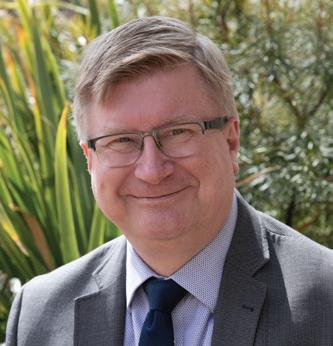

Speakers: Peter Jensen, Kara Hartley, Colin Bale, Rod Benson

